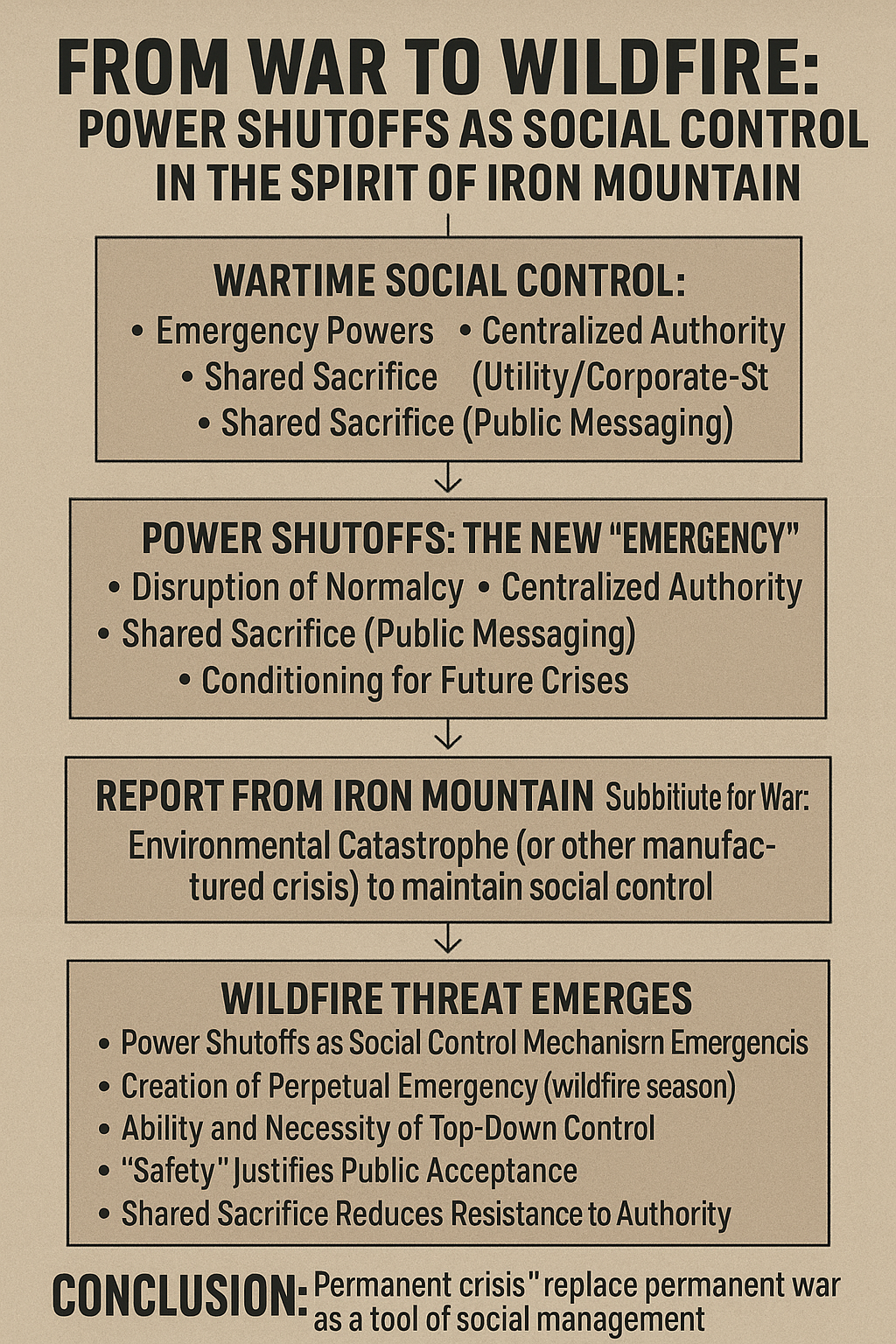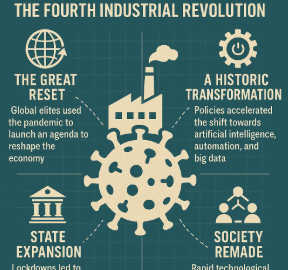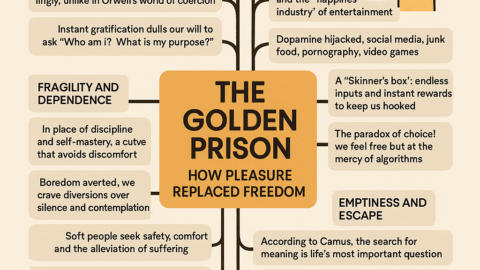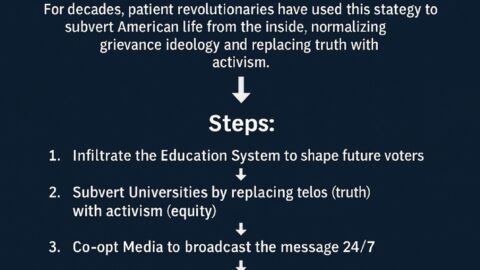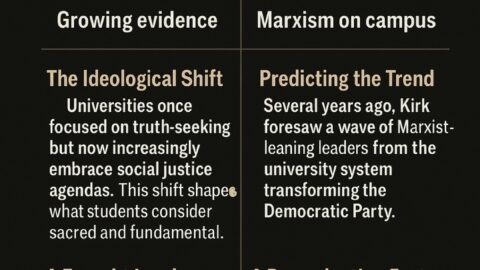Introduction: A New Age of Crisis Management
In the mid-1960s, the controversial Report from Iron Mountain raised a provocative question: If war is the organizing force of modern society, what happens if we run out of war? The report theorized that to preserve state power, social cohesion, and economic stability, societies would need “substitutes for war”—large-scale crises (real or manufactured) to justify ongoing state control and public compliance.
https://www.abc4.com/news/southern-utah/rocky-mountain-power-wildfire-power-shutoff
Today, we are seeing a new breed of crisis management. Wildfire threats, rolling power shutoffs, and public safety alerts are part of a broader pattern in which governments and corporations use non-military emergencies to manage public behavior and justify extraordinary measures. Nowhere is this clearer than in the Public Safety Power Shutoff (PSPS) strategies increasingly common across the American West.
Power Shutoffs: More Than a Weather Event
When Rocky Mountain Power issues a Public Safety Power Shutoff Watch or Warning, the company is responding to genuine wildfire risks. But the method and messaging around these power shutoffs do much more than simply keep people safe:
- Disruption of Normalcy: Planned, wide-scale power outages force people to adapt to emergency routines, changing daily life for tens of thousands.
- Centralized Authority: The decision to shut off power—made by a corporation in cooperation with state agencies—reminds the public who is in control of vital infrastructure.
- Social Solidarity and Sacrifice: Media messaging frames outages as a “shared sacrifice” for the greater good, fostering a wartime spirit of “we’re all in this together.”
- Conditioning for Future Crises: The normalization of emergency shutoffs prepares the public to accept other crisis-driven suspensions of convenience or rights—pandemics, cyber-attacks, supply chain disruptions.
Iron Mountain’s Substitute for War: The Crisis Society
The Report from Iron Mountain predicted that in the absence of real war, societies would have to invent or magnify threats to justify central authority and keep populations compliant. The report listed several possible substitutes:
- Environmental Catastrophes: Pollution, climate change, and natural disasters as perpetual sources of anxiety and justification for state intervention.
- Health and Safety Threats: Public health emergencies or “public safety” campaigns (sound familiar?).
- Technological Emergencies: Grid security, cyberattacks, and other infrastructural threats.
In each case, the point was not just to manage real risks, but to create a climate of managed crisis—where public fear, uncertainty, and dependence on authority become the new normal.
The Wildfire Threat as a Tool of Governance
How Power Shutoffs Mirror Iron Mountain Logic
- Creation of a Perpetual Emergency: Wildfires are seasonal but unpredictable, giving authorities a ready-made reason to disrupt normal routines, issue warnings, and exercise emergency powers.
- Visibility of State/Corporate Control: The ability to cut off electricity on a regional scale signals both the reach and the necessity of centralized control—after all, only the utility (with government blessing) can “protect” the public from disaster.
- Public Messaging: Communications emphasize that power outages are “for your safety,” cultivating gratitude for authority rather than resentment. The language is nearly indistinguishable from wartime propaganda.
- Shared Sacrifice, Reduced Resistance: When everyone must endure hardship together, questioning the logic of the sacrifice becomes socially risky—critics are accused of being selfish or ignorant of the danger.
Potential Pitfalls: When Management Becomes Manipulation
While the threats of wildfire and grid overload are real, the Iron Mountain framework warns that crisis management can slide into crisis engineering:
- Overuse of Emergency Powers: What starts as a justifiable precaution can become a pretext for ever-expanding authority and routine suspension of normal life.
- Reduced Accountability: Decisions made in the name of “public safety” can shield corporations and officials from scrutiny, especially if dissent is stigmatized as endangering the community.
- Public Fatigue and Learned Helplessness: Frequent emergencies erode the public’s sense of agency and trust, producing apathy or blind compliance.
Conclusion: Are We Building a Society on Crisis?
The Report from Iron Mountain was dismissed by some as satire and by others as prophecy. Either way, its central insight is chillingly relevant: a society can become addicted to crisis. Today’s rolling power outages, pandemic protocols, and climate emergencies are not wars—but they serve similar social functions. They justify centralized power, condition the public for compliance, and keep society mobilized in a state of low-grade emergency.
The question for citizens is whether these responses are proportionate, transparent, and temporary—or if we are drifting into a future where permanent crisis replaces permanent war as the glue that holds society together.
Further Reading:
- Report from Iron Mountain
- “Disaster Capitalism” by Naomi Klein
- Utility wildfire mitigation plans (Rocky Mountain Power, PG&E, etc.)
- Studies on crisis management and social psychology

